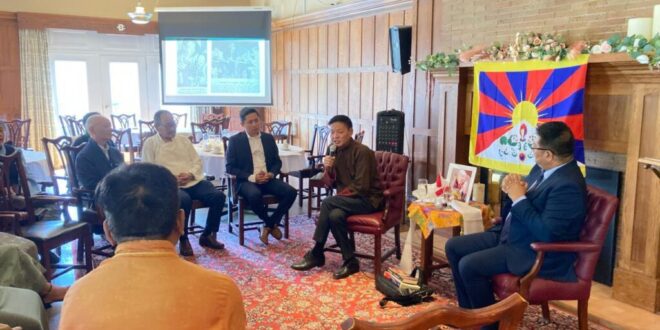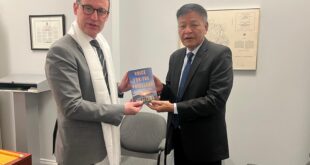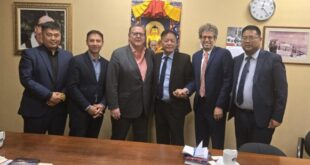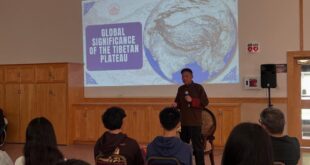Dharamshala: Sikyong Penpa Tsering made his maiden official visit to the Bay of Quinte region on 17 May 2025 to meet with the Belleville-Trenton Tibetan Community, as the democratically elected political leader of the Tibetan community in exile.
This visit marked his first official engagement both as Sikyong and, previously, as the Representative of the Office of Tibet in Washington. During the visit, Sikyong extended his warm greetings to the community members and provided an update on the rapidly changing demographics of the Tibetan exile community, as well as the diverse geographical distribution of Tibetans in the diaspora. “Our community has flourished and spread across the farthest corners of the globe, thanks to the astute leadership of His Holiness the Dalai Lama and the unwavering contributions of our elders,” said Sikyong. He then offered a brief overview of the community’s establishment in the 1970s, its gradual growth, and how it laid a solid foundation for the fledgling Tibetan community in Canada.
Given that the Belleville-Trenton Tibetan Community is one of the oldest Tibetan communities in the West, Sikyong underscored, “Despite the ongoing challenges that increasingly draw us toward assimilation into the cultural fabric of our host nations, we must remain steadfast in preserving our unique identity, as it is the very cornerstone of our struggle.”
Sikyong further addressed concerns about the alarming rise in the number of Tibetan children who now primarily speak Chinese due to the systematic institutionalisation of schools following ethnic assimilation policies. “Tibetans from various regions within Tibet often adopt Chinese as a common language to communicate, as it is difficult to understand one another in different local dialects. With growing concerns regarding the sustainability of the Tibetan language, it is crucial for the younger generation to recognise their inherited responsibility to safeguard our language,” he stated. Sikyong encouraged the youth in attendance to participate in the annual summer camps held in Dharamshala, which aim to educate Tibetans from the West and Australasia on Tibetan language and culture. He also urged them to engage in the Tibetan Youth Forums to become actively involved in the broader Tibetan movement.
In his address, Sikyong also touched upon the geopolitical and strategic significance of the Tibetan Plateau and the historical status of Tibet as an independent nation. Sikyong elaborated on how the current Kashag strategises its policies, particularly the Middle Way Approach, to gain leverage to it in the global stage.








